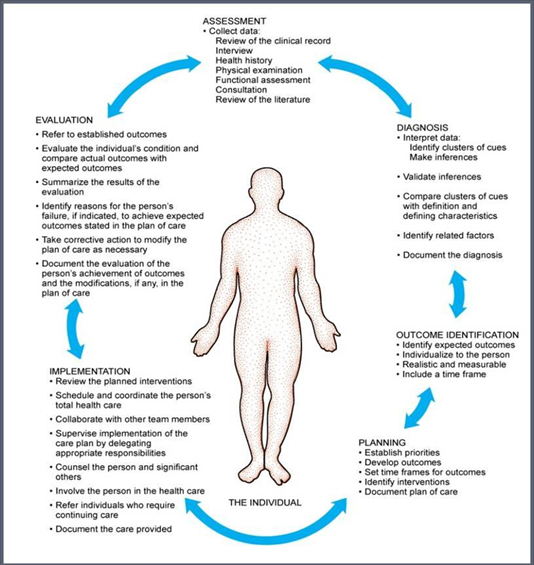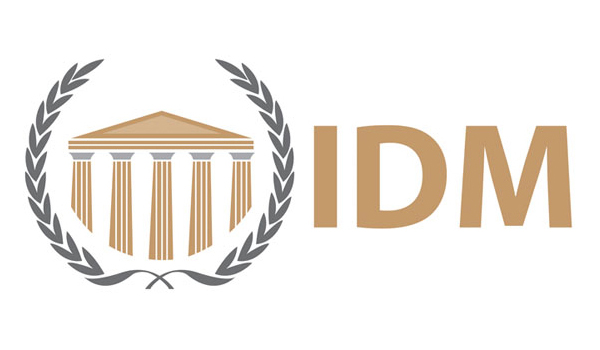MEDIATION: the act or process of mediating; especially: intervention between conflicting parties to promote reconciliation, settlement, or compromise
If “Mediators are the Nurses of the Divorce World” as Nancy Fagan writes for the Huffington Post, then Nurse Mediators should be in high demand!
Ms. Fagan writes that mediators are to attorneys what nurses are to doctors. [1] Her very dead-on assessment cites the logical, no fuss manner of hired attorneys determined to get what is in the best interest of their client. Lawyers are trained to fight, preferring quick, and to-the-point interactions with their clients.
Mediators, on the other hand, mimic the nurse’s role. Nurses are the ones with the bedside manner who care for the patients, talk to them, and get to know them over the course of their hospital stay. In the legal world, mediators sit in the same room with two upset clients, listening to their stories. They listen to them cry, listen to them vent, listen to them mourn the end of their marriage. Mediators are the proverbial shoulder to cry on – “the husband on one shoulder and the wife on the other.” (Fagan, 2015)
Some of the key differences/advantages to mediation are indicated below[2]. We can see how easily the nursing profession is compatible with these differences and advantages.
- Mediation Styles – styles to “fit” the couple:
- Evaluative – what is the case worth and how can it be settled?
- Facilitative – how to urge the parties to re-evaluate their positions without the mediator imposing any personal opinions
- Therapeutic – mediators claim authority to manage personal relationships and help partners reach mutual understanding through collective agreements.
- Transformative – mediators view disputes as opportunities for growth and self-empowerment – inspiring change or a shift in viewpoint.
- Confidentiality – mediation and the settlements agreed to are not subject to discovery or review by the courts; the mediation process remains confidential.
- Totality of Interactions – mediation involves all forms of communication. Mediators must be in tune to oral, written, demonstrative and the all-important body language that the participants exhibit. The mediator must never seem to be favoring one side over the other.
Mediation’s advantages over other adversary/legal processes include confidentiality, preservation of relationships, finding mutually acceptable solutions, saving money and having a final settlement when all terms are properly documented. A mediator with a healthcare background is bound by all the advantages listed above. Nurses are trained in the APIE or AAPIE approach and are a good fit for the mediation process as exemplified by their training:
- Assessment
- Analysis/Diagnosis
- Planning
- Implementation
- Evaluation

Figure 1 – Chapter 11: Critical Thinking Throughout the Nursing Process, Nursing 110 with Sahingoz, St. Catharine College
Data is collected in mediation much the same as data is collected in the ASSESSMENT picture above. Two partners will agree to see a mediator and learn the terms, or process of the procedure. From their research, they know that mediation can save money in legal fees – that by making financial, parenting and property agreements of their own choosing, they can avoid drawn-out acrimonious court cases.
The couple will gather their material per the checklist below, that includes many day-to-day items, and many NOT so day-to-day, to discuss and divide.
During the ASSESSMENT stage, the couple will tell their stories, plead their cases – in some cases pour their hearts out. In the legal world, mediators sit in the same room with two upset clients, listening to their stories i.e. assessing the conflict. They listen to them cry, listen to them vent, listen to them mourn the end of their marriage. Mediators are the proverbial shoulder to cry on but at the same time they must shift to their obligatory role of providing competent care, giving accurate and sound advice, counseling the partners (patients) on the hurdles they will be facing.
Next comes the ANALYSIS or DIAGNOSIS stage. What are the couple’s issues/problems? Now the nurse mediator will sit back and evaluate and interpret the data she took in. She will identify the cues, and validate the inferences. Is one of the spouses abusive? (If so, mediation is not appropriate). Do either of the spouses suffer from any medical problems? How are the children handling the divorce? Do they have any disabilities – physical or mental – that need to be treated/followed? Have all assets been identified? Will there be child support issues to work out? Who gets the house? Who pays for health insurance? What about future planning for college, etc.?
The mediator will present her recommendations to the couple. Then the PLANNING stage will begin – documenting the “care plan” so to speak. Some advantages of a healthcare background (nurse) mediator:
- Divorce is a traumatic experience – a nurse can LOOK AT THE WHOLE PICTURE and see who has gotten “lost” in the process. Divorce causes such chaos – parents get caught up struggling to get their needs met. A nurse has seen many patients and their families go to hell and back.
- Nurses are used to dealing with CONFLICT situations and will encourage expression of all viewpoints.
- Nurses are adept at NEGOTIATING – being able to consider one issue (i.e. diagnosis/problem) at a time. [1]
- Nurses are imbued with the HIPAA obligations of CONFIDENTIALITY.
- Nurses have resources – as experts in INTEGRATIVE DECISION MAKING – they know where to go for help and search out all the possible alternatives – i.e. the appropriate physicians and healthcare avenues – alternate therapies – types of counseling, etc.
- Nurses can act as OBJECTIVE persons communicating with the couple’s children. Many children rebel with an impending divorce. Talk therapy sometimes does not work for the parents. An impartial nurse mediator may be non-threatening and able to communicate with the children. What do THEY want? What are THEY willing to work for? Our nurse mediators can negotiate with colleges, trade schools – to find the BRIDGE to get the child over the “hurt” hump.
- A healthcare mediator is trained to DEAL and IDENTIFY A.D.D. (Attention Deficit Disorder), A.D.H.D. (Attention Deficit Hyperactive Disorder), Asperger’s Syndrome, Depression, Anxiety, NVLD (non-verbal learning disorder), and many self-harm syndromes.
- A nurse mediator can IDENTIFY and point parents in the right direction to special education programs (I.E.P’s) or accommodations with the American Disability Act (ADA) 504 Plan. This mediator can also recommend COUNSELING to get the children through the divorce process.
The nurse mediator will work with the couple to draft their plan. They are trained to decrease and diffuse conflict – not to fight.
A little more on CONFLICT and NEGOTIATION –
CONFLICT: Healthcare providers can face conflict on a daily basis – convincing a disagreeable patient to take their medicine, questioning a physician’s order that isn’t correct, a family member demanding information, issues with conflict of interest, etc. What is one emotion that is sometimes directed at a caregiver by a family at the patient’s bedside? Answer: ANGER. This can be a healthy reaction to situations over which people have no control. A nurse will be prepared to handle the anger that may manifest itself from one or both partners going through a divorce. A nurse will understand that the frustration and anger is not directed at them.
Nurse providers will know the typical outcomes of CONFLICT (Nancy Jenkins, 2004) –
- Win-Lose – One winner, one loser when competing or voting.
- Lose-Lose – No winners, avoiding an outcome.
- Win-Win – Through problem solving and collaborating, both sides achieve all or most of their goals.
NEGOTIATION: Nurses are adept at gathering data on their patients. They are adept at having a vision of what needs to be done. They can consider one problem at a time. When the goal or care plan is in mind, they know when to pursue a plan, or stand down when another provider has a better plan. Again, they know when to listen and can recognize when situations are unequal or when one party exerts dominance over the other. Kindness is always a good trait when one is negotiating a delicate emotional conflict between two persons that have fallen out of love. Nurses can certainly put that characteristic in their column!
A mediator assists communication, encourages understanding, and focuses the participants on their individual and common interests through CONFLICT RESOLUTION and NEGOTIATION. A mediator works with the participants to explore their options, make their own decisions and reach their own agreements.
The PLANNING stage is followed by the IMPLEMENTATION stage. This is where the pedal meets the metal! This is where the healthcare skills of excellent communication come into play – oral, written, demonstrative and even body language. The healthcare mediator will use her assertive communication skills, coupled with her extraordinary listening skills, to eliminate any misunderstanding. When the planning is done, he/she will summarize all decisions very clearly to be sure there are no misunderstandings. The actual document then comes together – the agreement – the pact that will stand as a testament to the commitment made by this couple to spend their money on their family – not the lawyers. To make the best out of a bad situation.
Finally, EVALUATION of the recommendations is reviewed. Was the desired outcome achieved?
Mediators are compassionate, results-oriented and sensitive. These traits afford them the patience to handle emotionally charged negotiations face to face with a divorcing couple. Mediators with a HEALTHCARE background are even more poised to make a bad situation a little less painful, because they are trained to “remember that there is art to medicine as well as science, and that warmth, sympathy, and understanding may outweigh the surgeon’s knife or the chemist’s drug (from the modern version of the Hippocratic Oath).”
[1] (Nancy Jenkins, 2004)
[1] (Fagan, 2015)
[2] (David Laufer, 2013)

